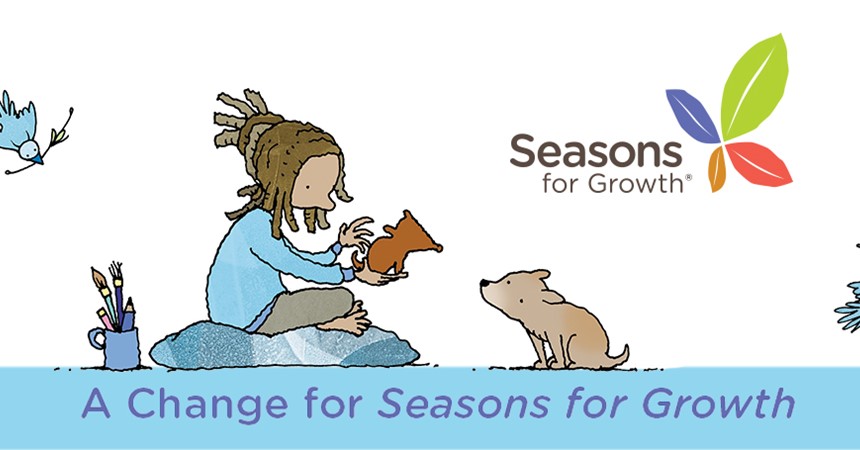What is grief?
Grief is the human response to change and loss in our lives, such as the death of someone we love, parental separation or other major change. It is a natural and normal response, which has a physical impact on our bodies as well as affecting our emotions and our thinking.
How do children express grief?
Like adults, children express grief in unique and personal ways. This can be influenced by a child’s age and understanding of the loss, but also by other factors such as character, situation or experience. Some (not an exhaustive list) of the reactions children may experience:
Children may:
• feel anxious, fearful, fretful and sad
- feel angry, frustrated or disillusioned
- try to mask their feelings to ‘save’ or ‘help’ adults around them
- have unrealistic thoughts about their loss • try to recreate ‘what was’ before their loss
- blame themselves • have frightening thoughts or worry about the future
- regress to younger behaviours • ‘lash out’ at family, friends or teachers or ‘act out’ in anger
- be overly clingy or unco-operative
- try to be overly helpful and cheerful
- be tired, distracted and unable to concentrate
- have stomach aches and headaches.
How to support a grieving child If we think of grief as a journey, our role as adults is to walk alongside children. We cannot take away the loss a child has experienced and we cannot grieve on behalf of the child. However, we can help him/her to understand and navigate the journey and we can hold their hands, encourage and support them when the going gets tough.
What support do children need?
- A strong, loving relationship with a parent or primary caregiver whom they can rely upon and trust • Clear, factual, age-appropriate information about the loss they have experienced • Warm, open communication to talk through and make sense of what has happened, repeatedly and without judgement
- Space to express a wide range of emotions (such as sadness, anger, fear, guilt and humour)
- Help to make sense of their emotions and reactions
- Security from their usual boundaries and routines
- ‘Time out’ from their grief, to be allowed to laugh and be playful
- Opportunities to be involved in decisions linked to their loss.
How to help as a relative, family friend, teacher or other professional
- Let children know their loss is recognised.
- Identify yourself as a safe person who is open and willing to listen (although don’t force children to talk).
- Help children to identify overwhelming feelings and let them know it is OK to feel sad, angry etc. • Help them to manage their feelings in different contexts (such as school).
- Check in with children regularly to keep communication open over time.
A Change for Seasons for Growth
Good Grief and the Diocese of Maitland-Newcastle have proudly enjoyed a strong and enduring partnership spanning 20 years delivering the Seasons for Growth change and loss programs.
Support for Companions
The National Program Co-ordinators are available to support Companions and others interested in training.
Support for professional learning
If your school or organisation is interested in staff training workshops or professional learning please P Good Grief Office; Karen Muir, 0428 620 264 or Louise Hall 02 8912 2700 or email.
Training Opportunities
Training for Seasons for Growth Children and Young People’s Program will be offered on 19 & 20 June, at CatholicCare, Pulteney St, Taree with Loretta Heffernan and on 7 & 8 November at Diocese of Maitland-Newcastle Hunter St, Newcastle West with Jennie Nolan. Register here.
We are very grateful to the diocesan and school leadership teams, and Benita, Jenny, Zoe, Jennie and Loretta for their support of the program over many years.
Follow Us on Facebook www.facebook.com/goodgriefltd/
Sign up to E-News info@goodgrief.org.au
MacKillop Family Services ABN 79 078 299 288 PO Box 1023 North Sydney 2059 P +61 (0)2 8912 2700 F +61 (0)2 9923 1655 E info@goodgrief.org.au
www.goodgrief.org.au



























































































